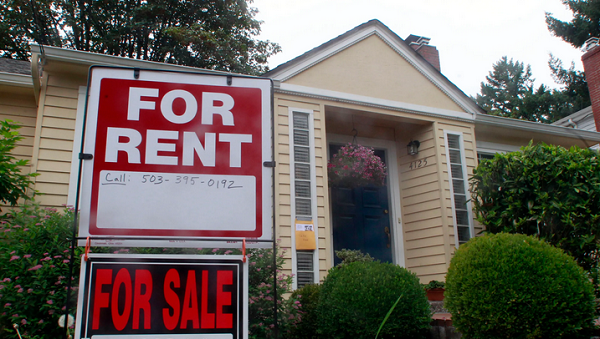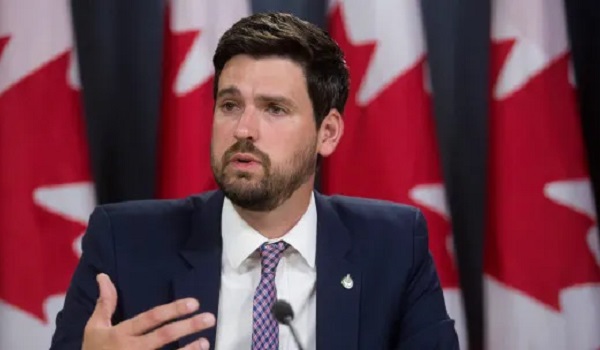Restriction on student permits for international students may offer temporary relief on rents, some economists say
The federal government’s temporary cap on international study visas may offer some “temporary relief” on Canada’s overheated rental housing supply, economists say, but other factors contributing to unaffordable housing must also be addressed for rent in Canada to come down.
On Monday, the government announced it will restrict access to work permits for foreign students and their spouses as part of new measures meant to limit and curb the abuse of Canada’s international education program. It also confirmed that Canada will implement a two-year cap on international study permits — news first reported by the Star on Friday — with an aim of reducing the number issued by 35 per cent from 2023’s level, to 364,000 in 2024.
“It might provide some temporary relief,” said Randall Bartlett, senior director of Canadian economics at Desjardins. “But it’s not going to solve the problem.”
While the concentration of international students in particular urban hot spots has contributed to rising rental costs and strained housing supplies in the GTA, Bartlett said housing challenges predated the influx and there are many other factors contributing to exorbitant housing costs.
“Affordability in Canada has been consistently eroding since the global financial crisis,” Bartlett said. “We have been undersupplying housing chronically for a very long time even before we had this big run-up in nonpermanent residents coming to Canada in the last year or two,” he added.
Doug Porter, chief economist at BMO, called the cap an “appropriate step” given Canada’s housing affordability issue but one that’s unlikely to lead to a sudden drop in rents as a result.
“I suspect we will see milder inflation over the next year but I don’t think we’re going to see rents going in the other direction and actually falling,” Porter said.
In Canada, population growth driven by immigration has exceeded the growth in available housing units, putting pressure on rental prices. The average asking price in December for a rental unit in Canada was a record $2,178 per month, an 8.6 per cent jump year-over-year, according to data from Urbanation and Rentals.ca.
Housing and Infrastructure Minister Sean Fraser on Monday said it’s too early to predict how the visa cap will impact housing costs, but said it could “reduce pressure,” especially on the cost of rent. Fraser added that the government hoped the move would have a greater impact in areas such as Peel Region, where many international students attend schools.
“You may end up seeing a bit of an alleviation of the pressure that people have seen as a result of the significant influx of international students over the past few years,” Fraser said.
The current affordable-housing crisis and rising cost of living have seen many international students struggling to secure employment and shelter, with some turning to food banks.
With dwindling provincial funding, post-secondary institutions have turned to international students as a revenue source. Employers have also grown used to the ceaseless supply of students to fill low-wage jobs in fast-food joints, retail, warehouses, factories and gig work.
Robert Hogue, senior economist at RBC, said the move, at least in the short term, might slow the demand for rental housing that is driving up prices, giving the country time to boost housing units. The areas that will see some immediate relief will likely be in communities and neighbourhoods where there are universities and colleges like the University of Toronto or around Hamilton’s McMaster University, for example.
“We can see at the local level it might have a little bit of an impact,” Hogue said. “But we’re not sure at this point on a more macro level the degree to which this will move the needle.”
But like Porter and Bartlett, Hogue agrees it’s too soon to tell whether the cap will have any significant impact on the rental market.
“This is not the end of the story,” Hoge said. “But it might give more time to build more student housing and to be able to absorb higher numbers if the government decides to lift the cap.”
Mike Moffatt, a policy expert and economist from Western University, applauded the move to cap international student visas, saying that it is the “single biggest thing” Canada can do to quickly address the housing crisis.
“While leases are rising at a double digit pace across the country a lot of people might say it’s all immigration and it’s not,” he said. “We’re also living through a very high interest rate and very high inflation environment right now and landlords are not only increasing their rents to meet demand, but they are also feeding through the higher costs that they’re paying to meet their mortgage payments.”
“This has been an ongoing problem, which has been exacerbated recently by the rapid population growth,” Bartlett said. “This policy isn’t going to solve that problem.”
With files from The Canadian Press
This article was first reported by The Canadian Press















